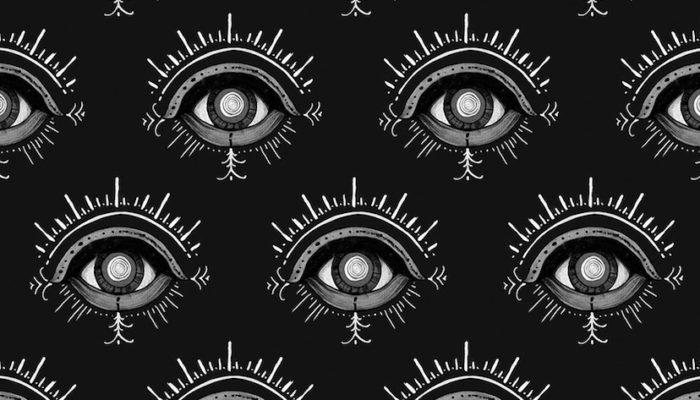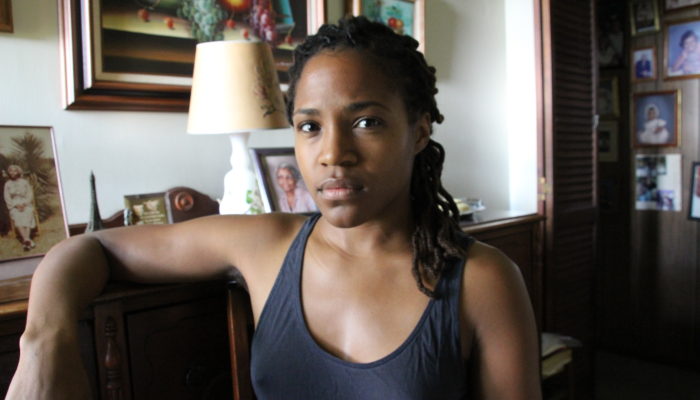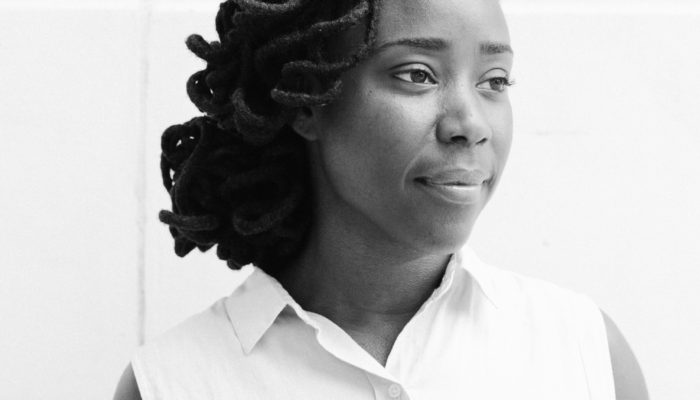Our online symposium, Faith at the Border, is nearing its end. What follows is a compelling and thoughtful email exchange between Apogee’s Poetry Editor and Issue 05 contributor Caitlin Blanchfield in which they discuss fear, dread, Rudolf Otto, and sociopolitical structures. These contributions for Faith at the Border are from our Issue 05 writers. Read their work in Apogee Issue 05, available for purchase now.
Apr. 16
Joey:
Greetings Poetry Contributors,
As part of our promotion strategy for the upcoming issue, the editors have discussed using our web presence to host an online symposium of think-pieces and/or essays by contributors of issue 5 on the subject of translation and faith.
Translation and Faith: What role does faith play in crossing borders?
Borders can be seen as representing a physical object or event–a borderline, state border, text or body (human, water)–or an intangible such as language, words, hybridity, and identity. The other side cannot be known until it is experienced and is, perhaps, unknowable even then. In the act of crossing between, in what do you place your faith? And how?
If you feel a response to any element of this question, I encourage you to participate. I also encourage you to extrapolate outward–not to think of “faith” or “translation” or their conventional definitions; should you like to redefine “faith,” go ahead! Should you like to explore the nature of the prefix “trans-” in translation, transcription, transcendence & how this interacts with faith (or not), then yes please!
If you would like to contribute to this online symposium please let me know.
There is no length requirement.
There is no deadline, aside from as soon as you feel the piece is ready. (Preferably within the month.)
Best,
Joey De Jesus
Apogee Journal
Apr. 16
Caitlin Blanchfield:
would love to. by within the month do you mean within this month or within a month (latter better for me).
see you friday
c
May 10
Caitlin:
hey joey. so this is just a start, but wanted to give you an idea of what im writing. would love to hear any thoughts.
[see attached:]
May 11
Joey:
this is extraordinary.
“National fears, from economy to contagion are encapsulated in this query.” I think this has a lot to do with faith. In The Idea of the Holy, Rudolf Otto writes, “There are in some languages special expressions which denote … this ‘fear’ that is more than fear proper. The Hebrew word hiqdash (hallow) is an example. To ‘keep a thing holy in the heart’ means to mark it off by a feeling of particular dread, not to be mistake for any ordinary dread.” He is providing an analysis of what he perceives is the ‘tremendum’ or the tremendous element of a holy other, and looks back at the etymology of tremor–fear to articulate a feeling of smallness in the face of the abstract or nonrational. I’m twisting your language but it seems like those that transgress the borders are seen as either providence (what veggies u got?) or plague (or both). I wonder about how this relates to your estimation that the border is a place built on registers of the rational/physical. I wonder about the relationship between the gnoseology of the other and the structures built to keep that out. I don’t know if any of what I said is helpful lol. BUT I REALLY look forward to seeing where this piece goes. It is already marvelous.
May 22, 2015
Caitlin Blanchfield:
Dear Joey,
Thanks for the chance to participate in this conversation. Me being me, at first I wanted to resist your provocation. Faith is something I rarely truck into; a thing that in my most cynical and hubristic moments (of which there are an unfortunate many) I’d say I have neither the time nor patience for. Push ahead. Plod along. Resist the encumbrance of expectation. Buoy yourself on action not intention. Something along these rather joyless lines.
My hesitation was compounded by my obdurately spatial treatment of borders, those zones that limn, divide, and inscribe states of exception. For me, the border is a place before it is anything else—and it is many things. What borders reveal are the layered registers on which physical space is constructed, be it through access, representation, narrative, or other means. My pieces in this issue of Apogee try to show the ways in which the rhetoric we use to talk about a spatial condition renders its physical form.
The argot of lobbyists and legislators is not without consequence in the built world. The border is a speech act: It is inscribed in the performative utterance that is the law, but beyond that it is made through the entire dispositif of governance. In his genealogy of economy, Giorgio Agamben traces the split between God and the holy trinity. Theology is the nature of God, oeconomia his praxis. Faith and management are split. Perhaps, then, the problem with the border, as I see it, is that it is precisely not the place of faith, it is rather the locus of management. The other side is known because we’ve been told what it is: A known unknown, in the parlance of a most beloved late capitalist orator. The faith then that we place in borders, our belief that they are there, that they are necessary, is prescripted because that imaginary is already shaped in a lexicon both spatial and rhetorical.
Border imaginaries are shot through, for example, with narratives of labor. Jobs are exported overseas, immigrants steal work, and employment beckons from the other side. This question of labor touches down on national boundaries not in the careful reading of a passport, but in one of the questions always asked of the crosser: Are you bringing any fruits or vegetables with you? National fears, from economy to contagion are encapsulated in this query. The influence of the multinational agricultural industry is even evident. Fragility, vulnerability, and control simultaneously reside in this query too. If it exists anywhere here, faith lies in the formality of its presentation. In a place so surveilled that honesty seems superfluous. But here we are, through language rehearsing any faith we have in a kind of governance that acknowledges rights. Yet beyond that one comes to understand how much a border dictates the management of life. In this case life means organic matter, and one can see how the tiniest parasite might radically alter a whole system of feeding, working, and containing the natural environment. It’s when you’re in that threshold zone that faith has the possibility of breaking down; that the fictions upon which we prop up difference become apparent.
You write to me that Rudolf Otto has something special to say of fear. That fear is in fact more than fear proper. To keep something holy, for Otto, is to protect it from a certain kind of dread. What is this dread? Is it the complexity of a world in which the promiscuity between systems, sites, and objects is so difficult to navigate because it is simultaneously so insidious and so fertile? Is faith that thing that allows us to make sense of this space—for instance the blind faith we put in our control society? Or is the timorous trembling of that figure on the brink of transgressing that border? Can we reclaim the figure of the smuggler not as the underground tunnel maker, or the coyote in the desert, but instead as the person who takes the leap of faith, who undermines, undercuts, and undoes the strictures that claim to guide the world. She’s the one who breaks the law and she’s the one who seeks out absurdity. She’s the one to sneak a persimmon across states lines and delight in indulging in the fruit of the gods.
In good faith,
Caitlin
Read Caitlin Blanchfield’s poem, “Erasures,” in Apogee Issue 05, available for purchase now.
CAITLIN BLANCHFIELD is a writer and editor who lives in New York City. Her work has appeared in San Rocco, New Geographies, Artforum, and the Avery Review, among other publications.
JOEY DE JESUS is poetry editor at Apogee Journal.
NICA ROSS is a New York based visual artist who works with photo, video and lighting creating pieces that instigate alternate narratives using themes of science fiction, queerness and desire. Nica’s photograph, “Jupiter,” is featured above and in Apogee Issue 05.




